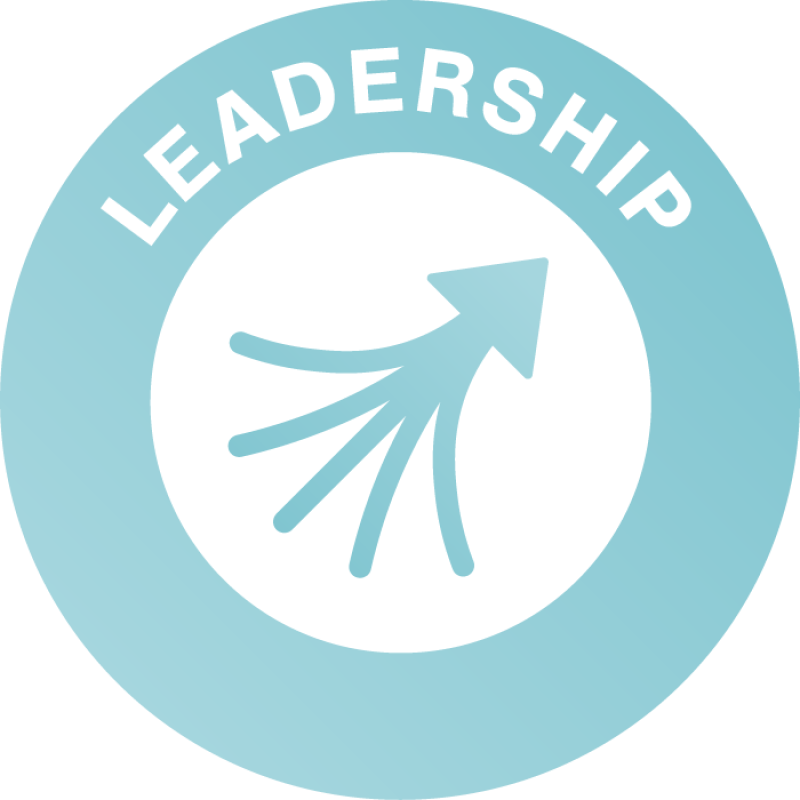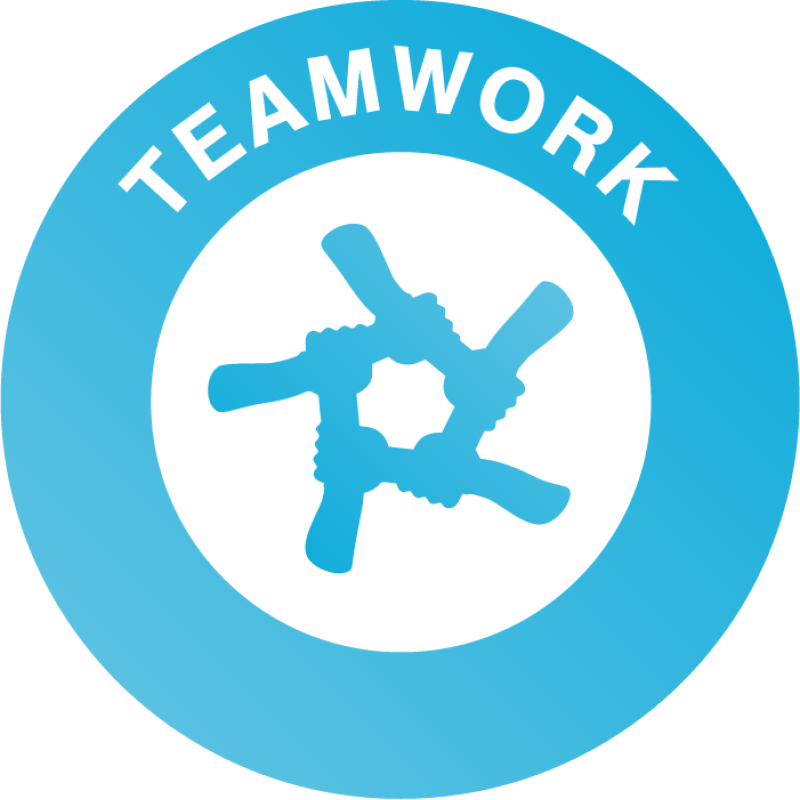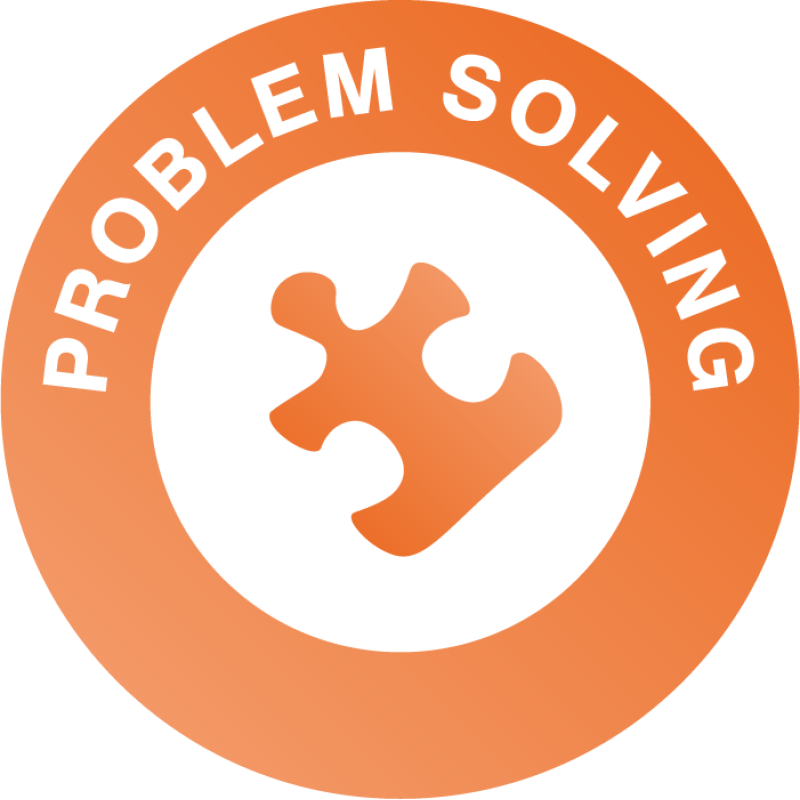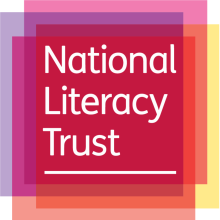Get inspired by how different schools have worked alongside providers to run innovative career-related learning for their pupils.
Many of the case studies have been shared by the same providers who contributed resources to the platform. You can link directly to those resources via the case studies below. Where a case study aligns with the Skills Builder Framework, it is marked with the corresponding icon so you can see which skills pupils developed as a result of the activity.
The CITE training materials aim to support (trainee) teachers to include careers-related learning in their teaching. At the end of the training teachers will:
- Understand the impact of unconscious bias in children’s career choices
- Know how to use the Primary Careers Tool to include career contexts in science and maths lessons
- Understand, and use, personal attributes in careers-related learning
The CITE training materials consist of three training sessions and associated ‘gap’ tasks. Each training session lasts about 1.5 hours to allow for discussion. The time required for each gap task will vary. After each gap task, participants will complete a reflective evaluation writing exercise.
The CITE training materials are best used as part of an ongoing training or CPD programme. You can access some of the materials via this platform. As a result of building careers into CITE, participants demonstrated confidence in using the resources that support integration of careers-related learning in the curriculum. Participants’ reflections demonstrated that they also felt more confident and prepared to challenge stereotypes in careers related learning, suggesting adaptations to the tools, and new ideas.
A teacher who attended the CPD said:
“We want as a school to raise aspirations and expose children to different careers and a barrier has been how to do this without a budget, but the resources shown today will help this.”
In-school lead: Teacher responsible for CPD
Usual cost: Not applicable
External partners: North East LEP and Northumbria University STEM
- Start early
- Embed into the curriculum
- Embed in a whole school approach and driven by senior leaders
- Open to all
- Keep it simple
- Start young, keep going
- Measure it
- Keep practicing
- Bring it to life
- See all resources from North East LEP
- Use the quiz to reflect on your school's current strengths and areas for development.
- To broaden pupil understanding of what it means to be part of the digital economy
- Pupils will practice essential transferrable skills, as well as the technical skills to be successful in the digital space
- To embed career-related learning in other school initiatives such as Social Action projects and curriculum areas
This project is about working with schools and pupils to address the problem of the increasing skills gap in the digital economy and the lack of diversity of opportunity in it. Through workshops and support for schools, the programme busts myths about digital careers and introduces the idea that the digital economy is about technical skills but it’s also about creativity, communication, collaboration, resilience, teamwork and content creation. Schools are supported to build a digital project aligned towards a social action initiative that is important to the school, the community or the pupils.
Examples include building a website or a marketing campaign. Once the project has been developed and set, a 2-hour handover session is delivered to teachers and TA’s with the aim of building their confidence to manage the digital project. Resources are also provided to help teachers and pupils to become proficient in videography, photography, social media and branding. A key part of the programme is support for pupils to undertake critical reflection on their work.
In-school lead: Assistant Headteacher
Usual cost: £4,000
External partners:
- Employer – technical support, coach and mentor
- Parents – reflections on children’s learning using Seesaw App
- Involve employers and parents
- Ensure activities are personalised and relevant
- Embedded in a whole school approach
- Bring it to life
- See all resources from The White Room
- Use the quiz to reflect on your school's current strengths and areas for development.
- To enable pupils to develop a range of employability skills through taking part in a STEM competition.
- To raise aspirations for primary age pupils and create 'whole system change' in the county
- To test approaches to parental engagement to support understanding of future career options and the employability skills required.
The Primary Careers Hub delivered 6 monthly training sessions for 23 pilot primary schools. Training sessions covered subjects such as current best practice in careers related learning, challenging gender stereotypes and accessing resources. At the start of the programme, schools were introduced to the Skills Builder Framework through the first training session and then had follow up twilight training at each school. Each school also identified a Designated Careers Champion to lead on the pilot.
Over the first half of the pilot, many schools quickly established relationships with local businesses via parents, school staff and wider community, and with support from the Primary Careers Hub team at the local authority. Many schools arranged multiple employer visits in the form of careers fairs. Over 160 different employers engaged with a minimum of 6000 pupils from Reception to Year 6 with a total of 8100 employer-pupil interactions.
In school lead: Headteacher, Deputy Head, Assistant Head and class teacher
Usual cost: Free
External partners: Employers, parents and the Local Authority
- Involves employers and parents
- Start early
- Embed into a whole school approach and driven by senior leaders
- Open to all
- Ensure activities are relevant and personalised
- Keep it simple
- Start young and keep going
- Measure it
- Focus tightly
- Keep practising
- Bring it to life
- See all resources from East Sussex County Council
- Use the quiz to reflect on your school's current strengths and areas for development.
- To broaden Key Stage 1 pupils’ aspirations and challenge stereotypes
- To improve pupils’ literacy skills for the future, including reading, listening, team work and leadership
- To show pupils how these skills are put into action in the work place to help them understand why literacy is so important for their future success
Words for Work: Dream Big brings together schools and local businesses to widen children’s aspirations by introducing them to different roles and working environments. The first exciting stop for the class embarking on the Dream Big journey was to visit a local business and meet their employees. Here they were given a tour of the workspace, told all about what the staff do and introduced to story books, to support discussion around careers and the children’s areas of interests. We discuss as broad a spectrum as possible, from the police force, to the performing arts to carpentry and children are encouraged to challenge social stereotypes in these discussions, as research has shown that this is roughly the age at which gender stereotypes begin to solidify in their minds.
Once the children have been immersed in the world of work, the class received a collection of books, props, and lesson plans which explore different jobs and sectors, including the type of business they have just visited. These lessons take a dive into different career paths to open children’s minds to lots of different possibilities. While broadening their aspirations, these lessons have been created in line with the reading and writing requirements set out in the National Curriculum, enabling teachers to incorporate these into literacy lessons.
The programme culminated in a celebration assembly which parents were invited to. The pupils are always excited to present the hard work they have been doing throughout the programme to their parents. Parents also received a ‘parent pack’ which highlights how important literacy skills are for their child’s future and career related learning (CLR). By encouraging parents to celebrate with the class, it helps families to continue these conversations at home and encourage them to dream big.
In-school lead: Literacy lead and year 1 class teacher
Usual cost of programme: Free - when funding is available
External partners: Local business, parents
-
Involve employers and parents
-
Embed into the curriculum
-
Embed a whole school CRL approach
-
Open to all pupils
-
Start early
- Keep it simple
- Start young, keep going
- Keep practising
- See all resources from National Literacy Trust
- Use the quiz to reflect on your school's current strengths and areas for development.
- To raise aspirations for a career in construction, architecture or town planning
- To practice and improve confidence in the Skills Builder 8 Essential Skills
- To gain experiences of the workplace through site visit and fieldwork as well as meeting business volunteers from the construction/town planning sectors
Lesson plans that were linked to the maths curriculum were designed so that pupils could learn about architecture, construction and town planning as part of their typical education. The pupils then took part in a site visit and field work in collaboration with local government. The teachers were supported with lesson plans, training and planning time as well as an organised risk assessed trip with trained volunteers from the industry who judged the pupils work. The programme was set up 4-5 months in advance. Teachers had 1 month to plan delivery and the project was delivered over a full week in school. The project gave pupils a chance to practice the Skills Builder 8 Essential Skills in the process of creating and presenting their project work, as well as gaining new experiences from meeting industry volunteers and taking part in field work.
In-school lead: Deputy Head and Year 5 class teacher
Usual cost: The programme ranges in price depending on the size of the school
External partners: Local business, parents and local government
- Involve employers and parents
- Embed into the curriculum
- Embed a whole school CRL approach
- Open to all pupils
- Keep practising
- Bring it to life
- See all resources from 15 billion EBP
- Use the quiz to reflect on your school's current strengths and areas for development.
- To raise pupils’ awareness of a range of employers and the importance of different essential skills and qualities, as well as possible opportunities
- To develop pupils’ skills – creativity, confidence, teamwork, communication, practical, application of knowledge (Science /Tech /Maths)
- Inspire pupils in an engaging and relevant way through personalised approach and focusing on individual skills and aptitudes
TeenTech City of Tomorrow is an interactive programme for pupils in Years 5-8. The full programme helps pupils to deepen their understanding of key employability skills and career opportunities in modern industry.
Teachers are supported with materials to prepare the school, pupils and parents to participate in the programme as well as advice and guidance for involving employers in an embedded career-related learning approach. During the main delivery day, pupils were asked to design and create their own model buildings using recyclable materials to explore how they will live, work and play in the future, taking into account the local and global challenges they identify.
Working in teams, pupils then presented their buildings and thinking behind them, with a view to making the world a safer, kinder and smarter place to live in. The activity was delivered in a one-day session with a follow-on showcase festival. Other formats and timeframes for schools to deliver are provided.
In-school lead: Principal or Headteacher and year 5 and 6 class teachers
Usual cost: Free resources available for download. Facilitated sessions available for a fee
External partners: Local employers, governor, local Government representative and parents
- Involve employers and parents
- Driven by senior leaders
- Open to all
- Bring it to life
- See all resources from TeenTech
- Use the quiz to reflect on your school's current strengths and areas for development.
- To gain an understanding of what “2030 careers” might look like
- Increase pupil understanding of the link between education, qualifications and career opportunities
- Engage parents/carers in the process and so aim to change their attitudes, perceptions and aspirations relating to their child’s education and career choices
Pupils worked with a range of employers from the Health and Social care sector to discuss the world of work now and to identify what “2030 careers” might look like. Pupils had the opportunity to engage with employers and undertake activities which inspired them.
We explored how differently this sector looked 10 years ago in comparison to now and how it will change again over the next decade. Development of the 8 essential skills were a key focus in relation to this sector now and in the future. Parents, pupils and employers collaborated on a fact-finding mission about the different roles and used their presenting skills to relay what they had learnt to the group.
It is important to show children the widest possible range of career opportunities available to them in any one sector. This project included paramedics, nursery managers, Health and Wellbeing university lecturers, occupational therapists, social workers and ward nurses. Parents were also invited to participate so they could learn about the range of options for a career in this sector.
In-school lead: Head and Deputy of Year
Usual cost: Free
External partners: NHS, local university, local nursery and other local businesses
- Involve employers and parents
- Start early
- Ensure activities are personalised and relevant to the age group
- Embed into the curriculum
- Embed in a whole school approach and driven by senior leaders
- Open to all
- Keep it simple
- Start early, keep going
- Focus tightly
- Bring it to life
- See all resources from Black Country Consortium Ltd
- Use the quiz to reflect on your school's current strengths and areas for development.
- To raise aspirations and broaden horizons
- To help pupils understand the link between learning at school and real-life job roles
- To develop pupils’ skills in listening and presenting
The pupils at Leen Mills Primary School took part in a Primary Futures aspirations morning that involved an assembly, followed by classroom talks. To achieve this, the teacher and Primary Futures Coordinator initially held a planning call to understand and create their careers-related learning activity using the Primary Futures platform. The Primary Futures Coordinator regularly corresponded with the teacher on the progress of the activity to ensure volunteers confirmed their attendance and the teacher felt confident about facilitating the activity on the day. Primary Futures also provided the school with resources and guides which outlined how to run the activities and invite volunteers on the Primary Futures platform. On the day, the pupils got the opportunity to ask in depth questions about the volunteers’ jobs and learn about how they use different subjects in their jobs. After the activity, Primary Futures discussed how the morning went with the teacher, provided a report on feedback collected from the children and offered support in planning future activities.
In-school lead: Class teacher
Usual cost: Free to schools as part of the Primary Futures programme
External partners: 5 volunteers from the world of work
- Involve employers
- Start early
- Open to all
- Start early, keep going
- Bring it to life
- See all resources from Primary Futures
- Use the quiz to reflect on your school's current strengths and areas for development.
- To develop a whole-school strategy for building essential skills
- To embed the Skills Builder Principles of best practise for teaching essential skills
- To support real impact of pupil learning through boosting essential skills
Strategic support is a core element of the Skills Builder Accelerator. The Accelerator is the flagship essential skill development programme with Skills Builder Partnership. Skills Builder pair schools with Education Associates, who are qualified teachers who deliver bespoke strategic support.
An effective programme to build pupils’ essential skills needs to be deliberate and strategic. The Skills Builder Principles outline best practise for building essential skills, and there is a matrix for what good looks like. Skills Builder schools work closely with their Education Associate to embed the Principles by outlining specific goals for their context.
For example, Principle 5 is ‘Keep Practising’, which highlights the importance of providing regular opportunities for pupils to learn, apply and reflect on the essential skills. One school may set a goal that all trips are followed up with a skill reflection. Other schools may take this further by booking and organising trips based on the skills they give pupils a chance to apply. Schools that embed Principle 5 effectively will take into account the essential skills that pupils need to learn when designing student experiences. This means that the impact of these interventions is more likely to be cumulative. Essential skills can form the common thread through a whole-school career related learning strategy.
In-school lead: Named “Skills Leader” usually a Deputy Head
Usual cost: Funded through the Skills Builder Accelerator (subject to successful application)
External partners: None required
- Embed into a whole school approach driven by senior leaders
- Start early
- Embed into the curriculum
- Ensure activities are personalised and relevant
- Open to all
- Involve employers and parents
- Keep it simple
- Start early, keep going
- Measure it
- Focus tightly
- Keep practising
- Bring it to life
- See all resources from Skills Builder Partnership
- Use the quiz to reflect on your school's current strengths and areas for development.
- To create a shared sense of priority and focus around essential skills, across the whole school
- To provide an opportunity to apply essential skills to an engaging, contained project
- To reflect on skill strengths and areas for development
‘Challenge Days’ are a Premium Resource from Skills Builder. Schools on the Skills Builder Accelerator can purchase Challenge Days to increase the impact of their programmes. Schools without a programme can still purchase this resource through Skills Builder Digital Membership.
Challenge Days provide an opportunity for pupils across the whole school to apply all eight essential skills to a challenge. There are differentiated versions of the same Challenge Day, so that EYFS, KS1 and KS2 can engage with the same theme, on the same day. There is a risk with off-timetable days that pupils compartmentalise what they are learning. Skills Builder Challenge Days put the essential skills front and centre, so pupils can see the transferable nature of what they are learning. As part of a comprehensive and strategic programme, Challenge Days can provide a brilliant opportunity for pupils to see how essential skills can be deployed to solve a wide range of problems.
For example, a school with a focus on sustainability ran Future Transport Challenge Day, where pupils explore different environments and build a 3D model for a futuristic mode of transport. All the teaching opportunities and structured reflections throughout the day are focused on the development of essential skills. It’s a day focused on process, not outcome, and therefore the learning can be applied in the future.
In-school lead: Named “Skills Leader” usually a Deputy Head
Usual cost: £250-£320 for resources, £750+ for in-person on-the-day support
External partners: None required
- Embed into a whole school approach driven by senior leaders
- Start early
- Embed into the curriculum
- Ensure activities are personalised and relevant
- Open to all
- Involve employers and parents
- Keep it simple
- Start early, keep going
- Measure it
- Focus tightly
- Keep practising
- Bring it to life
- See all resources from Skills Builder Partnership
- Use the quiz to reflect on your school's current strengths and areas for development.
- To provide a cross-curricular opportunity to teach essential skills
- To practice and apply essential skills to an extended, realistic project
- To create links between the essential skills learnt at school and those same skills that are applied by adults in the world of work
Projects provide the opportunity to teach the essential skills, while also answering a big question. This gives pupils the chance to explore the critical links between what they are learning now and the realities of the world of work. Projects are cross-curricular and comprise 10+ hours of fully-resourced lessons, with minimal printing. Each Project focuses on 3 of the 8 essential skills, so schools can choose the right project for the pupils they are working with.
For example, a school with a curriculum theme of sustainability in LKS2 chose “Trash to Treasure”. This Project taught aspects of Speaking, Creativity and Leadership through the narrative of designing a toy made from recycled materials. Whilst a fun and memorable experience for pupils, there is tangible learning too. Skills Builder Projects maximise project-based learning experiences as opportunities to explicitly teach essential skills and reflect on progress. Skills Builder Projects are structured to finish with a public exhibition or celebration for the community and parents to attend.
In-school lead: Named “Skills Leader” usually a Deputy Head
Usual cost: £50 - £80 each, £500 for all 24
External partners: None required
- Embed into a whole school approach driven by senior leaders
- Start early
- Embed into the curriculum
- Ensure activities are personalised and relevant
- Open to all
- Involve employers and parents
- Keep it simple
- Start early, keep going
- Measure it
- Focus tightly
- Keep practising
- Bring it to life
- See all resources from Skills Builder Partnership
- Use the quiz to reflect on your school's current strengths and areas for development.
- To build pupils’ essential skills by teaching the steps of the Skills Builder Universal Framework
- To teach pupils how to use an essential skill and immediately apply it to a short task
- To structure a reflective conversation between teacher and pupils about essential skills and their application
Short Lessons are freely available to any teacher on the Skills Builder Hub. Short Lessons are also a core element of the Skills Builder Accelerator, which is the flagship essential skill development programme by Skills Builder Partnership.
Each essential skill is broken into 16 steps within the Skills Builder Universal Framework. For every step of every skill there are a series of two or three ‘Short Lessons’. Short Lessons always introduce the skill, recap the previous step, teach strategies, micro test the key learning outcome, provide a short task to apply it, and structure a qualitative reflection.
Teachers use Short Lessons to provide their classes with regular opportunities to learn new strategies and apply them to a short activity. Teachers use Short Lessons as starters or plenaries. However, Short Lessons are stand-alone, fully-prepared activities so are often used flexibly within and around the national curriculum.
In-school lead: Named “Skills Leader” usually a Deputy Head
Usual cost: Freely available on Skills Builder Hub (also comes funded through Skills Builder Accelerator)
External partners: None required
- Embed into a whole school approach driven by senior leaders
- Start early
- Embed into the curriculum
- Ensure activities are personalised and relevant
- Open to all
- Keep it simple
- Start early, keep going
- Measure it
- Focus tightly
- Keep practising
- See all resources from Skills Builder Partnership
- Use the quiz to reflect on your school's current strengths and areas for development.
- To equip teachers with the tools, strategies and resources to teach essential skills
- To increase teacher confidence in embedding essential skills within their curriculum
Teacher Training is a core element of the Skills Builder Accelerator. The Accelerator is the flagship essential skill development programme with Skills Builder Partnership. There are two sessions of in-school teacher training, delivered by a qualified teacher in the Skills Builder team.
Student experiences are undoubtedly incredibly valuable, especially if they make explicit links to essential skills and the world of work. It’s even more powerful, though, to having an entire teaching staff using the same language to talk about essential skills. Pupils are more likely to be able to accurately reflect on their skills when they have been consistently taught over multiple years at school. Achieving a fully embedded model for career related learning and essential skill development requires buy-in from teachers of all phases. Through effective teacher training, Skills Builder equips teachers with the strategies and tools to bring the world of work into the classroom, through the common language of essential skills.
At Primary, the language of essential skills can be the bridge between what is being taught at school and the world outside the classroom. The same skills that help children learn also help adults to be successful in employment. Teachers can bring this language into daily practise, by maximising existing opportunities within the curriculum to highlight essential skills and showcase when children apply them.
In-school lead: Named “Skills Leader” usually a Deputy Head
Usual cost: Funded through the Skills Builder Accelerator (subject to successful application)
External partners: None required
- Embed into a whole school approach driven by senior leaders
- Start early
- Embed into the curriculum
- Keep it simple
- Start early, keep going
- Measure it
- Keep practising
- See all resources from Skills Builder Partnership
- Use the quiz to reflect on your school's current strengths and areas for development.
- To expose children to workplaces and jobs they may not know about, using the essential skills to bridge the gap
- To identify the links between the essential skills that pupils learn at school and how they are used by adults in the world of work
- To give children a chance to use their essential skills in a new context, and build their confidence
Employer Visits are a Premium Experience with Skills Builder. Schools on the Skills Builder Accelerator can purchase places for as many pupils as they wish.
Student experiences, like days out and special projects, are undoubtedly incredibly valuable. These experiences can be so much more impactful if they are delivered as part of a wider strategy for equipping pupils with the skills to be successful. Skills Builder trips include structured interviews with volunteers, giving pupils the opportunity to see how the same skills that they are learning about in the classroom are used by adults at work.
For example, in one school Year 6 visited Gowling WLG, an international law firm. In teams, pupils worked with law professionals to explore a case and prepare it for trial. Pupils were set their Speaking challenge: to take on the role of prosecution or defence lawyers. They formed arguments to present on behalf of their client. The day ended with a mock trial in front of a new panel of volunteers. Crucially, reflections and feedback on the day are centred on how they used essential skills, and how they can use them in the future. In this way, Skills Builder Employer Visits support a learning journey that builds essential skills over time.
In-school lead: Named “Skills Leader” usually a Deputy Head
Usual cost: £10 per pupil place, only available to schools on the Skills Builder Accelerator
External partners: Host employer with volunteers, all organised by Skills Builder
- Open to all
- Involve employers and parents
- Keep practising
- Bring it to life
- See all resources from Skills Builder Partnership
- Use the quiz to reflect on your school's current strengths and areas for development.
- Raise awareness about the importance of aspirations and careers education at primary level.
- Develop and strengthen links with local organisations and the broader school community to support the school aspirations and careers plan.
- Raise aspirations by providing opportunities for pupils to explore the world of work.
An interactive assembly was delivered by the Headteacher to launch the Raising Aspirations programme to Year 6 and the school community. This was delivered as part of National Careers Week and the event that followed was attended by Governors, Employers, Parents, Community Organisations and other local primary schools. As part of the event, pupils were given an opportunity to explore the strategic programme being delivered in school with parents and interact with 12 different employers in small groups. The delivery plan for future activities relating to the programme was shared and a strong focus placed on how it can contextualise learning, be a motivational programme before SAT’s and support the transition to secondary school. The school developed a partnership with a local organisation who attended the event and have since committed to co-fund future activities with Positive Footprints for an additional 2 years. Training and learning opportunities were also made available to parents.
- Involve employers and parents
- Open to all
- Embed in a whole school approach and driven by senior leaders
- Bring it to life
- See all resources from Positive Footprints
- Use the quiz to reflect on your school's current strengths and areas for development.
- Build essential skills in a workplace setting through a work-related challenge
- Understand how employees use essential skills
- Build aspirations
Year 6 pupils visited Gowling WLG, an international law firm, and gathered as much information as they could about their hosts and the volunteers who were joining them for the day. In teams, the pupils were then set their Speaking challenge: to take on the role of lawyers and prepare a case for trial. They acted as either prosecution or defence, forming arguments to present on behalf of their client. The pupils analysed evidence, choosing the most compelling pieces to weave into their case. The day ended with a mock trial in front of a panel of volunteers. They reflected on how they had applied Speaking throughout the challenge and looked ahead to how they could apply this skill again in the future.
In-school lead: Deputy Head teacher
Usual cost: £10 per pupil
External partners: Volunteers from Gowling law firm
- Involve employers
- Ensure activities are personalised and relevant to the age group
- Open to all pupils
- Embed in a whole school approach and driven by senior leaders
- See all resources from Skills Builder Partnership
- Use the quiz to reflect on your school's current strengths and areas for development.
- To broaden pupil understanding of jobs available in their local area.
- For pupils to learn the skill of goal setting and putting practical steps in place to achieve a goal
Pupils visited the Eden Project and met and worked with four different teams taking on relevant job tasks. Back in school the pupils planned interview questions for a follow-up session with one Eden employee in which they delved into their employee’s ‘career journey’. Pupils then used lessons learned from their experiences to set themselves an achievable goal and think about the practical steps they would take to achieve it.
Through encountering a diverse range of employees with different experiences and backgrounds the children expanded their knowledge of job opportunities in Cornwall. Other new ideas encountered were the variety of jobs an individual might do over the course of their career journey, and the diversity of motivations that individuals hold. Suitably scaffolded by their teacher, the pupils were very capable of identifying a goal of importance to their future, and of articulating relevant steps to help them move towards that goal. One teacher commented that it particularly highlighted to him children who weren’t getting a sense of aspiration from home, enabling him to target interventions more effectively.
In-school lead: Year 5 class teacher
Usual cost: £6.50 per pupil plus cost of travel
External partners: Parents
- Open to all
- Involve employers and parents
- Ensure activities are personalised and relevant to the age group
- Focus tightly
- Bring it to life
- See all resources from Eden Project
- Use the quiz to reflect on your school's current strengths and areas for development.
- To raise awareness of the relevance of subjects in school to a future world of work.
- To build confidence and develop problem-solving, communication, creativity, team building and leadership skills.
- To raise aspirations and provide role models for children to better understand the world of work and the benefits this can bring to them later on in life.
This one-day facilitated session involved introducing children to ‘Destination Rail’ using the construction of a railway track to explore challenges and careers along the way. This was followed by highly interactive activities designed to help children learn about ‘Bridge Building’, STEM careers and their ‘can do’ skills.
Children were encouraged to concentrate using the ‘magic ball’ technique and to work in teams as part of a competition to construct their own railway. Additional STEM awareness took place through memory activities using maths and bonus challenges. Children were encouraged to build different types of bridges using blocks, paper and cello tape to learn more about different types of engineering careers.
They were also encouraged to raise their aspirations, enjoy teamwork and think about jobs in the future.
In-school lead: Year 3 Primary School Teacher and Teaching Assistant
Usual cost: £500+VAT
External partners: Two highly skilled members of Learn By Design facilitated
- Involve employers and external organisations
- Embed into the curriculum
- Open to all
- Bring it to life
- See all resources from Learn by Design
- Use the quiz to reflect on your school's current strengths and areas for development.
- Broaden aspirations and challenge stereotypes
- Provide information on careers and what a typical day in each job involves (if such a thing exists!)
- Reassure young people about the career opportunities available to them and how they can begin to prepare themselves by having a positive attitude and taking opportunities to learn and develop skills
During the lockdown period, Greenwood Academies Trust – a Multi-academy Trust – carried out an online careers week for all primary aged children across the trust. The week included 10 interactive talks from employers and employees and a Flipgridchallenge. The week was supported by Primary Futures and the trust’s employer partners.
As well as a creative Covid-19 lockdown solution, the purpose of the week was to create interest and excitement in a variety of careers using props, uniform and visuals. The week involved two-way interaction between the pupils and participants, which is a key element of making an online employer engagement meaningful.
Career-related learning is embedded in all the schools within the academy trust and Greenwood are proud to have appointed teaching staff as Careers Leaders in all their primary schools – something only currently required at secondary level.
“The children both in school and at home have loved the sessions…Seeing how inspired the children were from them all and the buzz about school of children talking about what they wanted to be and how some had changed because of the talks” (Teacher)
In-school lead: Education Adviser for Careers and Employability (MAT level); Careers Leads and Teachers (Academy level)
Usual cost: Free
External partners: various local and national businesses
- Embed into a whole school approach driven by senior leaders
- Start early
- Ensure activities are personalised and relevant
- Open to all
- Involve employers and parents
- Keep it simple
- Start early, keep going
- Measure it
- Bring it to life
- Use the quiz to reflect on your school's current strengths and areas for development.





















